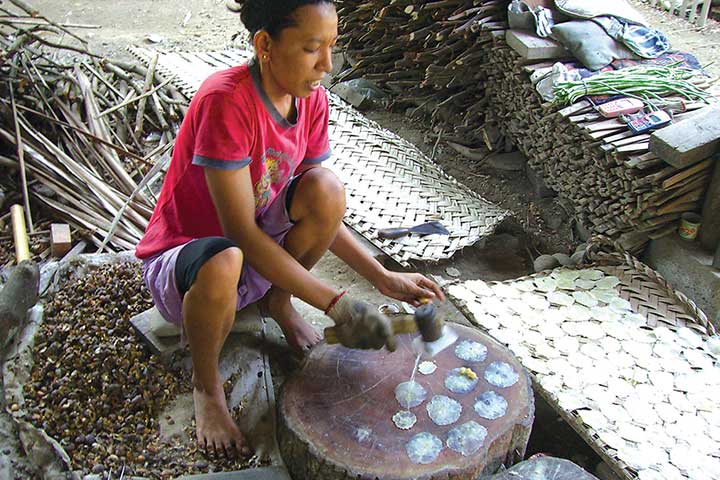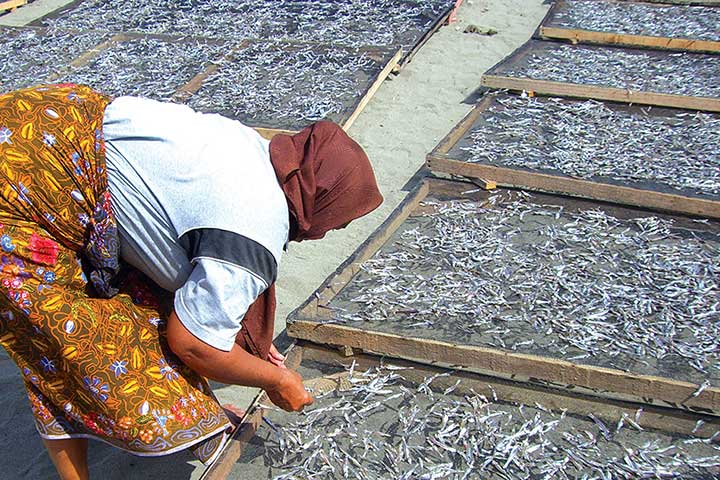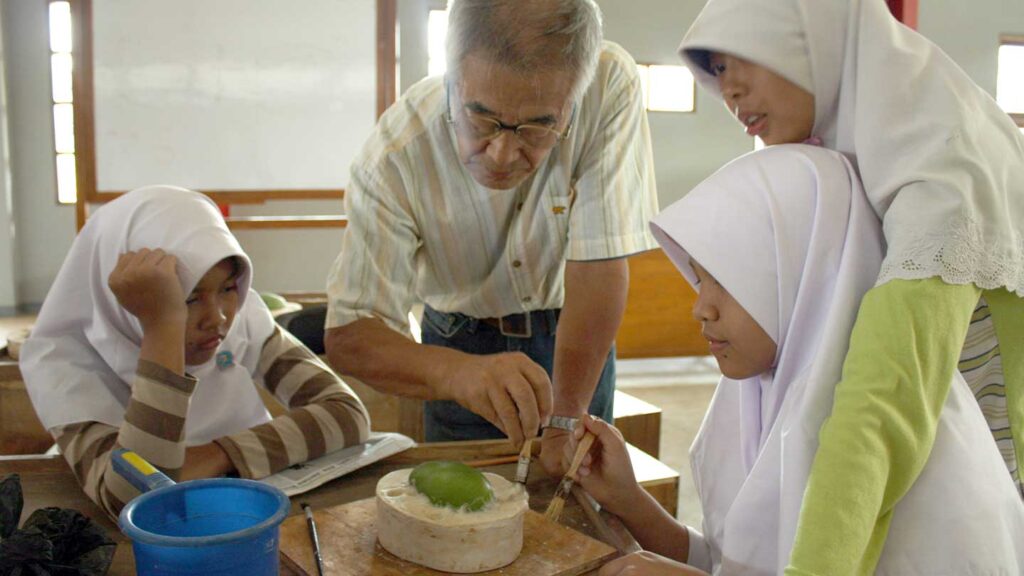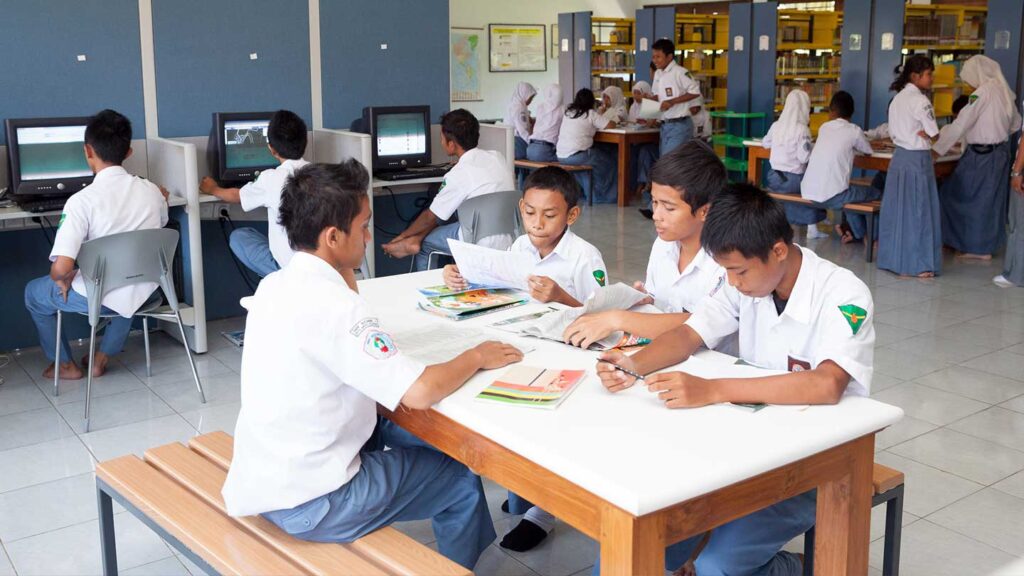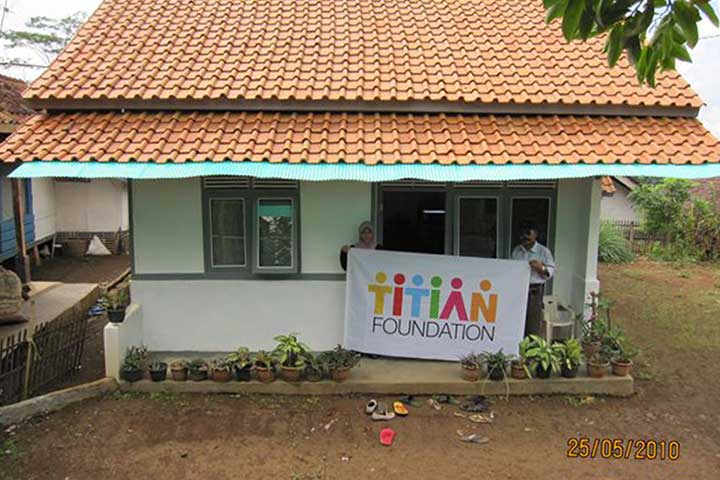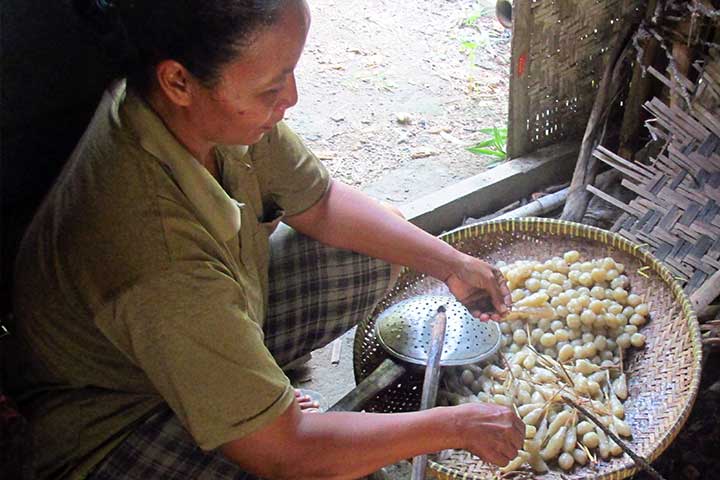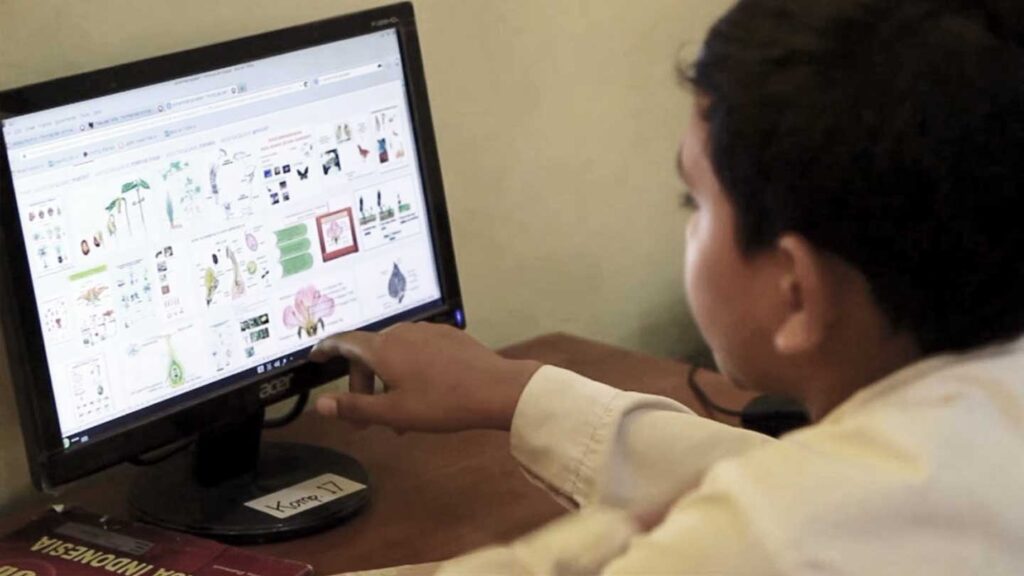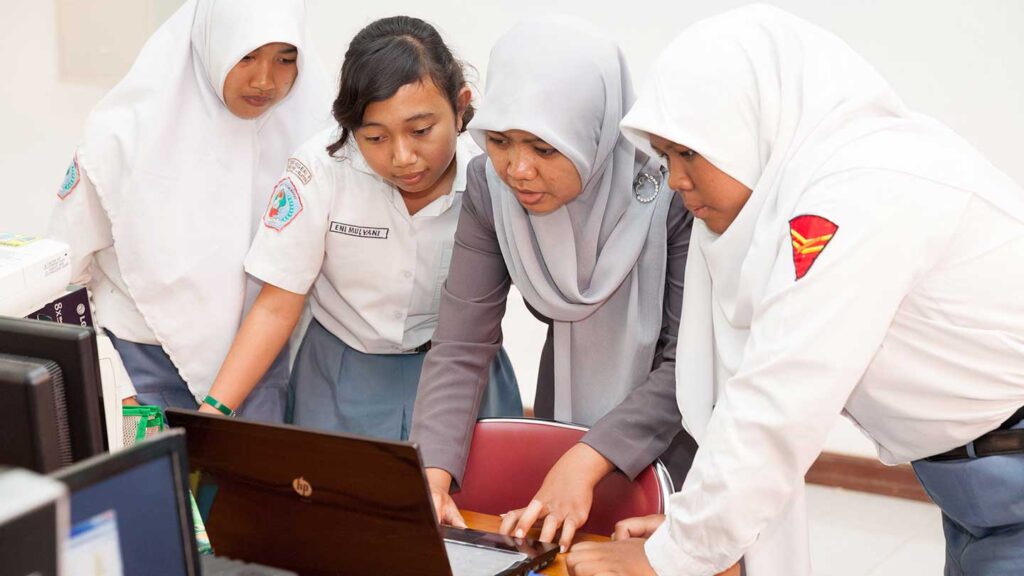Past Endeavours
Titian has completed a number of significant projects which now successfully operate on their own. We still keep a watchful eye on them of course, but we are delighted in their sustained progress. Each is an inspiring story in its own right and represents the principles on which Titian operates. We look forward to working with partners to run more of them in the future.
The Catalyst: Aceh-Nias Project
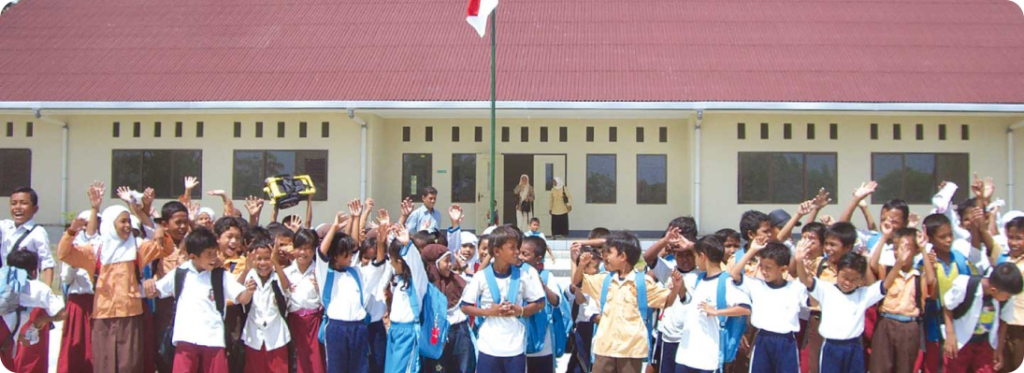
Indonesian businesswoman Lily Kasoem was drawn to Aceh province because of the devastation caused by the tsunami in 2004. Entire towns were wiped out and more than half a million people were left displaced. Two years after working tirelessly to help the surviving victims in Aceh she set up Titian Foundation and decided to go full-time into helping less fortunate communities in Indonesia.
Bayat Vocational School
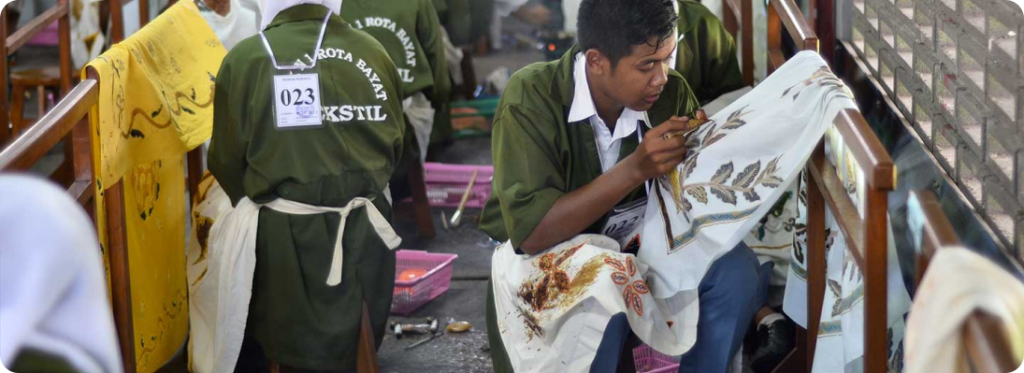
When the Governor of Central Java at the time, Mr. Mardianto, asked us to build a school in Bayat, and was prepared to provide 26,000 m² of land for us, we jumped at the opportunity without hesitation. Working together with the regency, and with funds provided generously by Qatar Foundation’s Reach Out To Asia (ROTA), we set out to build a modern vocational school focusing on traditional crafts of batik and ceramics.
Cigalontang, Tasikmalaya
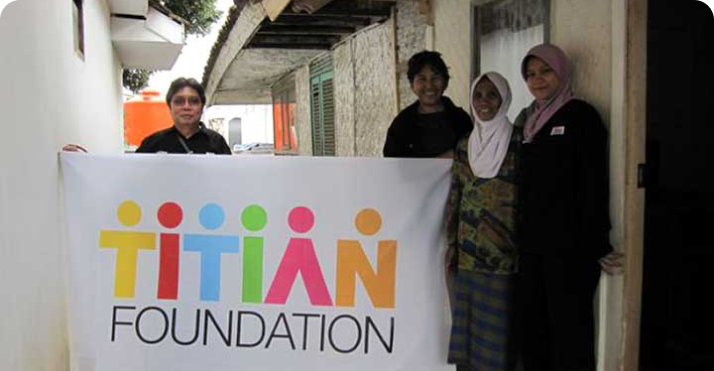
In 2009, Titian helped rebuild eleven houses that were swept away by a landslide that struck the small village of Cigalontang in Tasikmalaya.
Microfinance
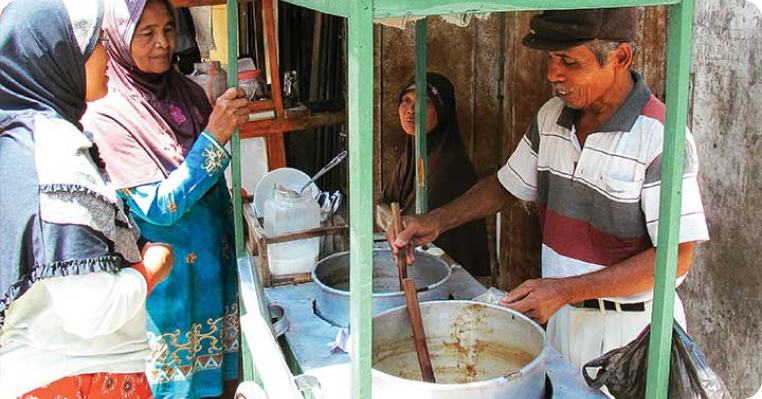
Helping children to get education is one way to get them out of the poverty cycle, however Titian found their parents also need a helping hand to improve their living circumstances. Often the hindrance to their progress is the limited access to capital that small enterprises face in remote regions. That’s why, in 2014, Titian launched its Microfinance Programme.
ICT For Education
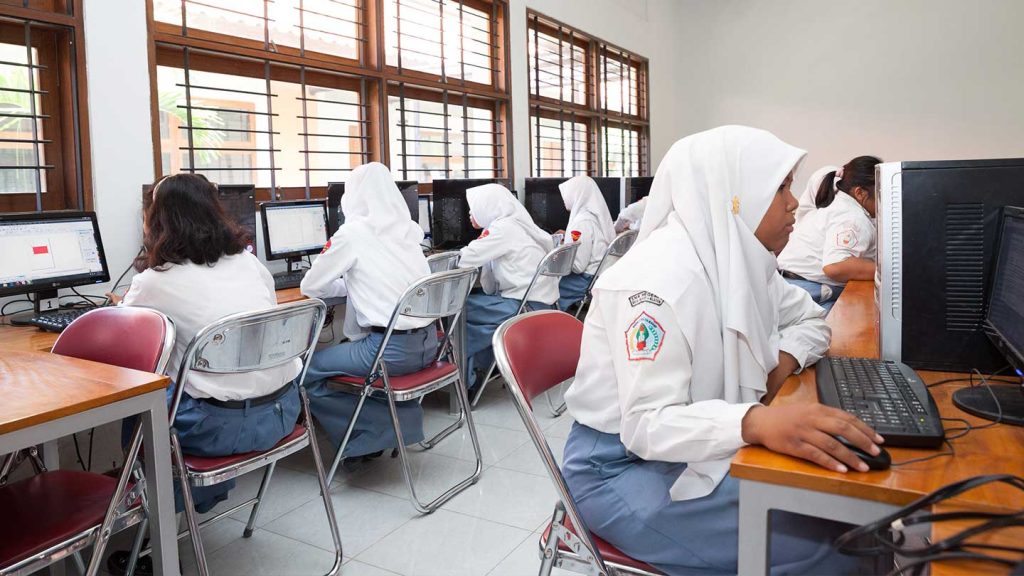
Information and Communications Technology (ICT) is internationally recognized as a vital tool for improving the quality of education and to provide life-long learning skills for school students. ICT also helps to enhance school administration and develop better teachers through improved teaching and learning methodologies.
Members of the community of a village called Gemawang in the regency of Semarang, Central Java welcomed the idea of building a CLC with open arms. Enthusiastic support from the village chief allowed us to build a large integrated Community Learning Centre on a 2,000 square meter plot of land. The CLC has three separate blocks. There is are two classrooms, a joglo that serves as a multi purpose gathering place, a computer lab and a building at the front that serves as a commercial gallery to sell and promote various products made by local businesses. A separate building across the road houses a library.
In 2018, CLC Kaliurang opened to the public. Located at Kilometer 24 of Jalan Kaliurang, just a couple of minutes’ drives from the portal marking the entrance to tourist sector of Kaliurang.
CLC Kaliurang is equipped with a library as well as a computer Lab. There is also a big room for training purposes that can accommodate 40 people in a classroom setting.
We developed this CLC as we were building the Bayat school, and it is therefore inside the school compound. Those who use it are mainly school-age children from surrounding villages. They are utilizing the centre for after school activities. These children are eligible to access the library facilities and attend regular activities such as: story-telling sessions, mind exercise games, writing competitions as well as having access to the rich collection of books and toys. The children also enjoy the use of computers with access to the internet.
Titian Foundation is slowly persuading the older members of the community to use the centre for their community activities – especially those which enable them to enhance their skills and knowledge.
Despite its proximity to Bayat CLC, SMKN 1 ROTA CLC was established in a similar way to Bayat CLC as an enhancement of school library inside the compound. This is based on Titian Foundation’s mission to provide learning and education facilities to a wider range of beneficiaries. The CLC building was completed by the time the school construction was completed in June 2009.
Open to the public, this CLC houses a large collection of books on life skills and business and makes it available to older members of the community. The CLC also comes equipped with audio visual equipment and eight computers connected to the internet. It is hoped that the community will utilize the computers for internet research, on-line marketing, job searching and career development.
When a strong earthquake struck West Sumatera in October 2009, it was forceful enough to destroy or seriously damage buildings. Patamuan District was hardest hit with 18 schools damaged, leaving around 2,500 students studying in temporary facilities.
The CLC, that has three main activity centres, is fully-operational as a result of partnerships with local communities, led by a Wali Nagari, and the school. Various programmes have been introduced, such as a competition for kids, courses, the supply of a new collection of books and audio-visual materials, socialization and book reading.
In 2009 we helped rebuild eleven houses that were swept away by a terrible landslide that struck the small village of Cigalontang in Tasikmalaya. As part of the same scheme, and as a follow on programme, we developed a Community Learning Centre in the village.
Equipped with five computers, a library, as well as audio-visual equipment for community learning; around 40 people, mostly elementary school students, visit the CLC every day. A computer course is also conducted here for students of the nearby elementary and junior high schools.
Titian has always been eager to replicate the success of Bayat Scholarship Programme to other underprivileged areas. After surveying some schools and villages in Central and West Java, it turned out there is still a substantial need for Scholarships and community empowerment close to Jakarta, in Tangerang Selatan (Tangsel). Hence, Titian Foundation opened a new CLC in Tangsel in 2017. A rented house has been turned into a CLC, which also serves as a Titian branch office in Greater Jakarta. The setup of this CLC is supported by CLSA Chairman’s Trust and Soroptimist International of Jakarta.
Aside from Scholarship Programme, this CLC offers other periodical programmes that are open for community such as music, English mastery, computer, sewing, and tie-dye.

